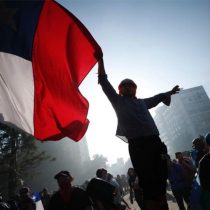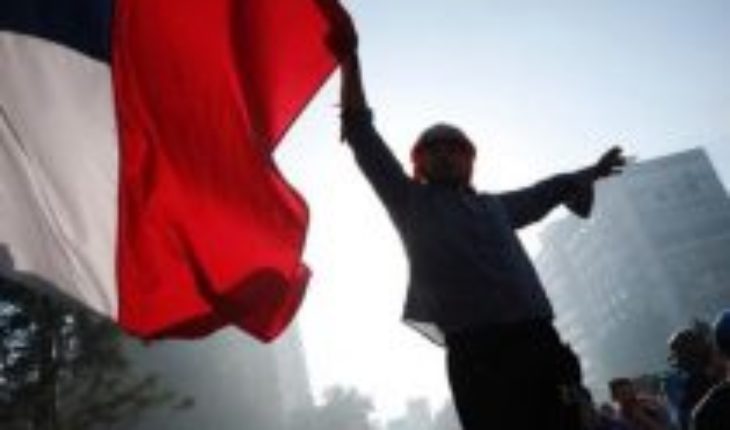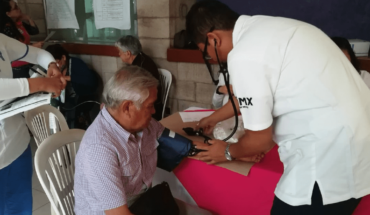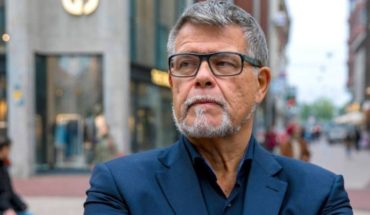
Much has been said about the disaffection of citizens with politics, as one of the evils that crosses society in the face of a lack of trust in institutions. But will it really be the public that has abandoned politics? There are facts that sometimes make you think not.
First, power is an inexhaustible source of dispute and conflict, that does not make it good or bad, power is in itself conflict and dispute, whether by particular or collective interests, economic, social or cultural; power on the one hand builds common senses and on the other, it seeks to represent common senses, persuading or imposing, it should also be noted that power is not only in the institutions of the state, the supranationals or political parties, it is in all spaces of human relations, as Aristotle put it, “the city is one of the most natural things , and that man, by its nature, is a political or civil animal…”
On the other hand, politics makes the dispute by power possible, it establishes the bellies, it makes it practical and tangible, in one way or another it puts a face to power, whether it is its institutions or leadership, in the construction of ideas and because it is a manifest form of power becomes transcendental, it can change in forms, mechanisms, moments, dimensions, but never exhausts , never ceases to exist.
Citizenship has a permanent and direct relationship with power and politics, from individuality and in the grouping of communities, at the same time, it can act in a subordinate way by imposition or conviction, it can also act in insubordination, from questioning and challenge when it wants the logics and relations of power and politics to change the axis of rotation.
Since the fall of real socialisms at the end of the last century and, in our country since the return of democracy, the political narrative has been focused for three decades on the politics of consensus and as far as possible, as if democracy had a finite and if the political dispute had already come to an end. This meant that political conductions sent citizens literally “for the house,” basically, because the ultimate goal had already been achieved: Democracy. As if democracy had limits in itself. What the ruling class at the time, forgotten, is that the limitations were not of democracy, but of its own political decisions, paraphrasing Bauman, liberalism has become only an apology of its own limitations.
Conflicts, after eradicating the possibility of contesting projects, reduced politics as a mere synonym of conviction that everyone deals with their individual affairs, identities were left in the memories of the twentieth century and a real “no matter who governs, for what and for whom”, managed to get the institutions to start lacking legitimacy , the link between state and citizenship began to become extinct, citizen unrest increased and rejection of the ruling class grew unchecked. The arguments were always that people disaffected the politics, the decisions of the public, in every election falls electoral participation and political leaders excuse the people, as in an act of irresponsibility, not attending to choose their representatives, therefore the responsibility for bad governance or public management is the responsibility of the people. Wrongly, analyses of democracy seek to explain the disaffection of citizens with politics as a way of dealing with social, political, cultural and all kinds of conflicts.
However, after October 18, it became clear that citizenship does demand political policy and demands politics, what it does not share is the way it has taken these 30 years, does not tolerate being alienated from an action and space that it knows belongs to it, the space of the public. The feminist demand is evidence of this, the never more without us, is the clear and concrete demand to return and demand the politics of the public. Since October 2019, citizens have turned to the seats to discuss the country’s future, inequalities were questioned, injustices took over and a new Chile, a new constitution, has been called for. So can we keep saying that citizenship is disaffected from politics? Obviously not. Citizenship has always been a significant political asset in the country, what has happened is that it has been marginalized from public space and public debate. Why? Because the concentration of power means infinite privileges for those who control it, privileges of all kinds.
So, what was the problem? The problem has been in the ruling class of politics, which has disaffected themselves from citizenship and wanted to confine it only to the private space. It must be acknowledged that common sense has been built by the people, the people of Chile, and the ruling class still does not understand that this space no longer belongs to it, because citizenship turned to public space, even the crisis for covid-19 has further reinforced the common sense of public space, of common goods , but the ruling and political class only debates in its tiny microclimate. That is why this intense demand for the political debate to be focused on the public, on the urgencies of the absence of rights, public health and common goods, that is, citizenship has become more political than “politicians”. It is that people in the process of construction that demand and debate about a country project and the role that the state should have. It is politics without “politicians” that is beginning to delineate this new people.
It is clear that since October it has been the public, as a people, that has understood and exercised the role of the public, created new dichotomies and began to build the new frontiers. It is a people that calls us to build new debates and new paradigms without the fear and fear of confronting themselves that has “the political class”. This town is building “another policy,” because unlike the ruling class, it fears that everything will stay the same.
The content poured into this opinion column is the sole responsibility of its author, and does not necessarily reflect the editorial line or position of El Mostrador.





